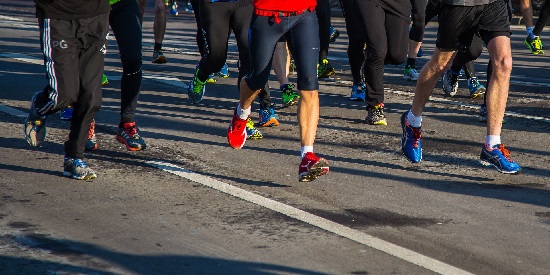World first trial good news for coronary heart disease patients
Media release
A new study published today in Heart has found that real-time remotely monitored exercise programs could be an effective way to reach more adults with coronary heart disease, especially those living in regional and rural areas.
The study compared the effectiveness of using mobile and wireless technology-assisted cardiac rehabilitation exercise programs that can be delivered in any location, to standard supervised cardiac rehabilitation programs that are conducted in a rehabilitation centre.
Professor Ralph Maddison, from the Institute for Physical Activity and Nutrition at Deakin University, said the results showed powerful mobile technologies can extend the possibilities and capabilities of future exercise-based rehabilitation.
"With innovative technologies, such as smartphone, wearable sensors and web app features, we were able to monitor and coach participants in our trial from remote locations and review their performance in real-time," Professor Maddison said.
"We could also assist with goal setting, behaviour change education and social support.
"During their exercise training, our participants' workload, heart rate, breathing rate and physical location were transmitted to a web server and visualised in a web app for an exercise specialist located elsewhere to review and provide coaching feedback.
"This all happened in real-time and simultaneous monitoring of several participants was possible, allowing the specialist to provide individualised coaching, feedback and social support throughout."
Professor Maddison said the findings indicated a remote sensing platform for supporting exercise can be just as effective as traditional supervised exercise for improving cardio-respiratory fitness in people with heart disease.
"This is very exciting as we know that regular exercise has a range of benefits for people with heart disease, but less than one-third of people attend traditional centre-based programs, and a high number of them stop going altogether," he said.
"We hope these new flexible technologies will help people with heart disease who can't or won't attend centre-based programs to schedule exercise into their daily life and increase their confidence and motivation to exercise."
Professor Maddison said remote programs could also result in a substantial reduction in the costs to deliver the program and had the potential to provide an attractive alternative option that was effective, cost-efficient, safe, and suited some patients much better than traditional programs.
"Using individualised exercise monitoring and coaching, the remotely monitored rehabilitation program provided frequent interaction between participants and the exercise specialist that included telephone, email and web-based communication," he said.
"The trial proved that we can deliver gold-standard exercise coaching and supervision remotely and can close the gap between home and centre-based programs by making responsive, individualised intervention support available to people in almost any location."
IPAN is now extending the study to include people with cardiovascular disease living in metropolitan regional Victoria as part of a NHMRC funded trial (APP1144331). If you're interested, please phone 9246 8461 or email jonathan.rawstorn@deakin.edu.au
Professor Maddison is supported by IPAN. The REMOTE-CR trial was undertaken when he was a Professor at the University of Auckland and was funded by the Auckland Medical Research Foundation.
Link to study: https://heart.bmj.com/content/early/2018/08/27/heartjnl-2018-313189

